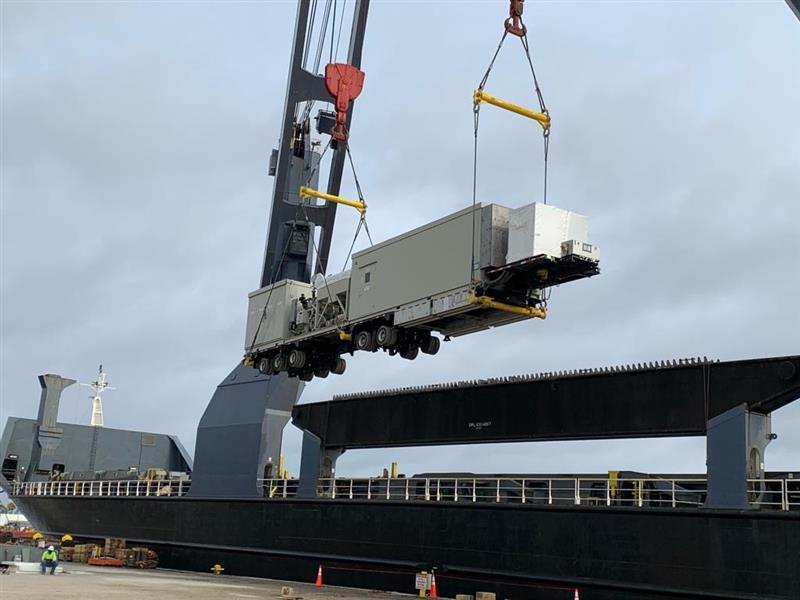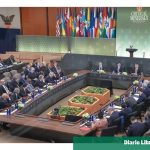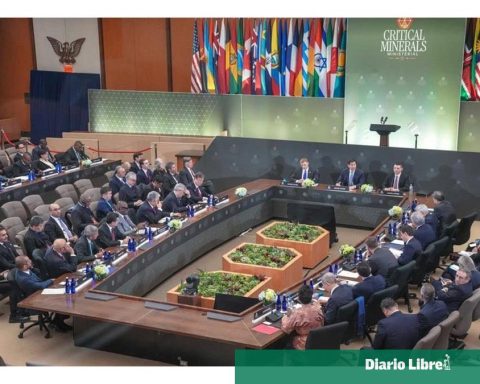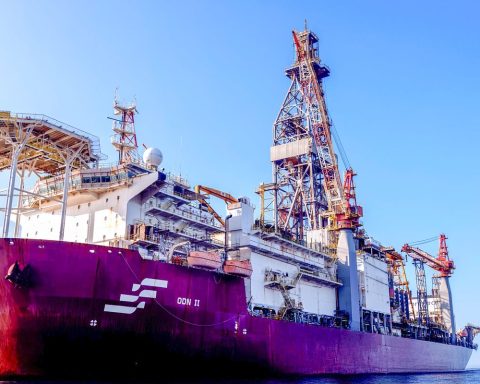When “Roberto”, manager of a Nicaraguan commercial company, saw that the quarantine in the city of Shanghai, decreed as part of China’s ‘Zero Covid’ policy, paralyzed activities in that city’s megaport, he realized that he had little time to ensure that you would receive your merchandise on time.
The cessation of activities in that port city increased the depth of the global logistics crisis that has the world’s importers and exporters in check. And Nicaragua is no exception.
The situation that overwhelms world maritime trade began in 2020, when countries closed their borders to try to contain the wave of covid-19 infections, which meant that the containers that had arrived in America and Europe loaded with merchandise, did not could return to Asia, and accumulate in Western ports. The result was that the value of freight increased exponentially, generating a wave of global inflation.
This year, when hopes began to rise that world trade would return to normality prior to the start of the pandemic, the Russian invasion of Ukraine once again disrupted exports of urea, cereals, agrochemicals, steel, etc., affecting agriculture , commerce and construction, among others, hitting the Nicaraguan business community, which was already suffering from the national economic crisis, coupled with the effects of the 2019 tax reform.
If the Chinese decision to close Shanghai was not as noisy as the Russian decision to invade Ukraine, its effects were just as devastating, if not more, because it stopped an important part of global trade. Precisely, the part that passes through the port of that Chinese city.
“While Shanghai remains in quarantine and there are restrictions on other international maritime routes”, especially those that border Russia, or cross the Bosphorus (Turkey), “ships will have to make longer journeys, so the impact on world trade will be direct ”, said Joe Henry Thompson, an expert in global transportation and logistics issues.
That puts urea, pesticides and insecticides that come from Russia, (“everything that is needed for agricultural production, because of the bans on Russian ships,” Thompson described), in the same basket of problems, with everything that It comes from China and other Asian nations, such as white goods, televisions, micro components, cars and merchandise in general.
“All of this will become more expensive,” warned the expert, reporting that some large chain stores that deal in general merchandise “are not bringing some products because the supply chain is stuck,” and that is not new, as shown by the fact that “A good part of the merchandise that was stranded in November and December still does not enter the country. The war and the quarantine only make it more difficult,” he explained.
Replacing Shanghai
When Chinese President Xi Jinping ordered the megacity of Shanghai to be quarantined, “Roberto”, who works as a manager of a company that imports and distributes products in various departments of the country, ran to ensure that his merchandise would not be stranded.
“On the one hand, it is still an affectation that the largest port in the world is closed, but both the Chinese government and the shipping companies have learned their lesson, so that when they close a port, they create alternative routes, just than when they are repairing a road,” he declared.
In this case, this solution implies that, instead of concentrating the merchandise from other Asian ports in the port of Shanghai, they are transshipping it in other ports, which has been useful to relieve some of the pressure caused by the closure. of the port facilities of that city.
“Right now there is not such a big impact as the one seen last year, when it was not possible to get containers, or spaces on ships. The ones that are being delayed are the loads that leave directly from Shanghai”, he pointed out.
In the case of the company he represents, Shanghai is a transshipment port for merchandise leaving Shenzhen and Shantou, which they now consolidate in other ports, ensuring that they will have their merchandise on time.
“Those who have Shanghai as their main port of departure -or entry- do report large damages, but this is not our case. In the last two weeks, while the logistical problem has worsened, we have managed to maintain our cargo programs without major effects”, he assured.
For Thompson, although “Roberto” managed to solve the challenge that was presented to the company, the decision to make these transshipments means “having to pay other carriers, so that the merchandise does not get stuck, which raises the prices”.
That is precisely the other element that has businessmen who depend on international trade to do business worried: the change in the trend in the cost of freight starting in May. If prices were falling, without reaching the levels prior to the start of the covid-19 pandemic, now they are seeing how they rebound again.
“The concentration of vessels is such that this will complicate the logistics of international transport, which was beginning to normalize; by flowing more and better, costs were falling, as expected, but this makes the merchandise more expensive again and generates logistical delays, due to the importance of that port”, he explained to CONFIDENTIAL another expert on world trade issues, who asked to comment anonymously.
Cars, yes. steel, not
Data from the Central Bank of Nicaragua (BCN), show that, in 2021 “Nicaragua imported more than 900 million dollars in merchandise from China; so I have no doubt that this problem in that port will affect the cost and flow of our imports. This situation generates a lot of concern among the members of various union organizations, who ask their leaders how to handle it,” said the expert on world trade issues.
The problem is not the same for everyone. For example, importers of automobiles are (for now) calmer than traders of steel, or those of equipment and spare parts.
CONFIDENTIAL learned that the closure of Shanghai does not necessarily affect any of the vehicle brands that are distributed in the country. In the first place, because those that do use that port do not have shipments on the way at this time, although its executives are clear that if Shanghai continues to be closed for a long time, then there will be effects.
The second reason is that there are few vehicles manufactured in China that are sold in Nicaragua, in addition to those of other manufacturers that are sold in the country, do not use that port to consolidate their cargo, as is the case with other types of merchandise that travel in containers.
On the other hand, the delays in the vessels that bring spare parts and equipment, make this type of merchandise scarce, and prevents keeping stocks updated, explained a businessman from the commercial area. However, there is an item that is even more concerned: the one that gathers around steel for construction, they told CONFIDENTIAL an industrialist and a trader in the sector.
“The war in Ukraine is delaying steel shipments,” said the industrialist, while the trader said that “we had to make a delivery in Nicaragua, but we are behind schedule. The manufacturer has everything ready to send us the steel, but there is nowhere to ship it”, he specified.
This source acknowledges that the problem did not originate in Beijing’s decision, but rather has a direct antecedent in Moscow’s. “In general, everything affects us, not just Shanghai, which is one more hair in the soup. Now we see that the price of supplies and logistics are very expensive, because there are no boats. Even in Houston,” he noted.


















